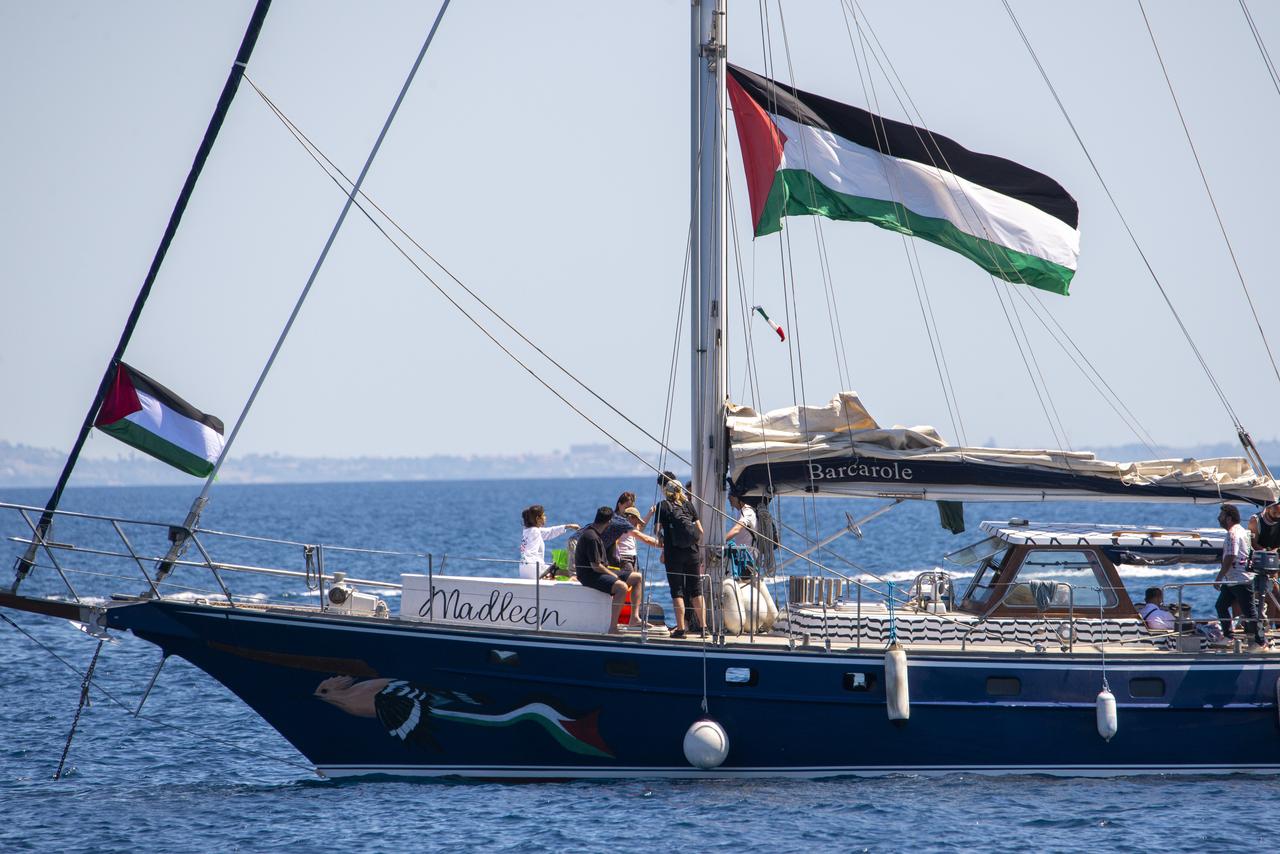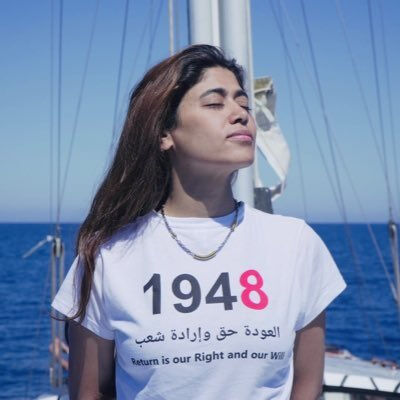
Palestinian-French politician Rima Hassan, the first female Member of the European Parliament (MEP) elected from France's leftist party La France Insoumise (LFI), has emerged as one of the most prominent political figures aboard the “Madleen” vessel.
The ship, part of the Freedom Flotilla Coalition (FFC), is en route to deliver humanitarian aid to Gaza. Just hours before the vessel was expected to reach Gaza, Hassan spoke exclusively to Türkiye daily about the mission’s urgency and implications.
The "Madleen" carries more than humanitarian supplies—it also sends a strong diplomatic and human rights message. Rima Hassan's presence underscores the political significance of the journey.
Israeli authorities had previously denied Hassan entry into the country.
In an interview with Turkiye daily, Hassan candidly addressed her reasons for joining the mission, Europe's accountability, and the global silence surrounding what she described as crimes against humanity in Gaza.
Criticizing the double standards of France and the European Union, Hassan explained her decision to join the flotilla: "What led me to join this mission was the concern for consistency. For more than a year and a half—through my work in the European Parliament and through civil society activism—I have been seeking ways to oppose Israeli policies and Europe's complicity. At this point, I believe we must take more tangible and effective actions. This mission (FFC), aimed solely at delivering humanitarian aid to Gaza, reflects that need."
"Furthermore, initiatives like the 'Gaza March,' set to depart from Cairo on June 12 toward the Rafah border crossing, are also in preparation. As the urgency—especially amid famine and genocide—continues to escalate, I believe we must remain consistent with our beliefs and respond to such calls for action.”
The ship is expected to reach Gaza on June 8.

Calling for safe passage, Hassan continued, "With regard to protection from France and the EU, we have launched a campaign based on the appeal of 11 U.N. Special Rapporteurs demanding guarantees for the safe passage of the Freedom Flotilla."
"We are clearly asserting the necessity of enforcing international law. We are urging authorities to intervene so that we can fulfill our mission and protect those on board."
Hassan denounced Europe's role in arming Israel, saying it amounts to complicity in war crimes. She highlighted concerning military collaborations by France, Germany, and Italy: "Yes, there is clearly proven complicity by several European countries. I would like to remind everyone that half of Israel's arms imports come from European countries. After the United States, Germany is the second-largest exporter. Italy is the third. France, meanwhile, continues controversial military collaborations that journalists have exposed in recent days."
She noted that the dockworkers in France had refused to load military shipments in protest against what they viewed as the country’s complicity in the ongoing genocide.
Hassan added that although political discourse around Palestine had slightly shifted, they did not believe it stemmed from genuine conviction, arguing that true sincerity would be reflected through meaningful action.
"This political rhetoric, in my opinion, is a reaction to strong civil society mobilization. The real battle now is for sanctions—real measures that hold the State of Israel accountable for its actions."
Hassan urged the immediate suspension of the EU-Israel Association Agreement, citing Israel's disregard for human rights: "The most urgent step for European institutions is, of course, to suspend the EU-Israel Association Agreement."
"The EU is Israel’s largest trading partner, and Article 2 of the agreement requires respect for human rights. Given Israel’s regime and ongoing crimes, we must consider this urgently. Israel is not a credible political partner, and sanctions are imperative."
Though the aid on board may seem symbolic, Hassan emphasized the mission’s legal and political weight: "This action is both symbolic and political. The humanitarian supplies—200 kilograms of rice (440 pounds), 100 kilograms of flour (220 pounds), 600 diapers, baby formula, medical supplies, and crutches—are a mere drop in the ocean compared to Gaza’s needs. The U.N. says about 500 trucks of aid are needed daily."
She stressed that the mission aimed to break the blockade and highlight that Gaza was besieged not only by land but also by sea.
Hassan added that delivering aid by sea was both a legal and moral right, citing U.N. Special Rapporteurs who had affirmed that Gazans were entitled to receive aid by sea, even under occupation.
Stressing the need for international vigilance, Hassan issued a direct appeal:
"I hope our media campaign and our efforts to mobilize international public opinion will pressure the states involved in this mission. Let me remind you: there are six French citizens on board. If anything happens to us and no country provides assistance or diplomatic intervention, the consequences will be grave."
She concluded that states and the international community have two key responsibilities: first, to ensure the application of international law, and second, to protect their own citizens on board.